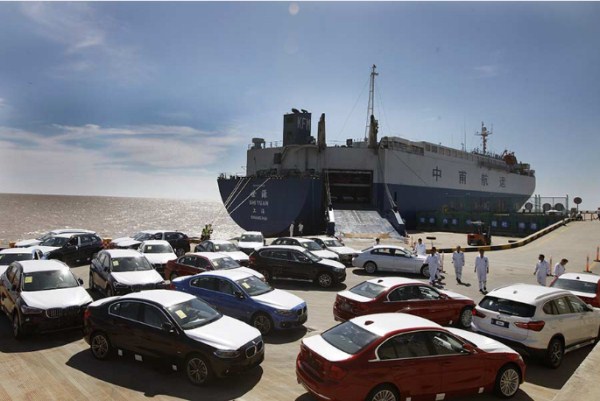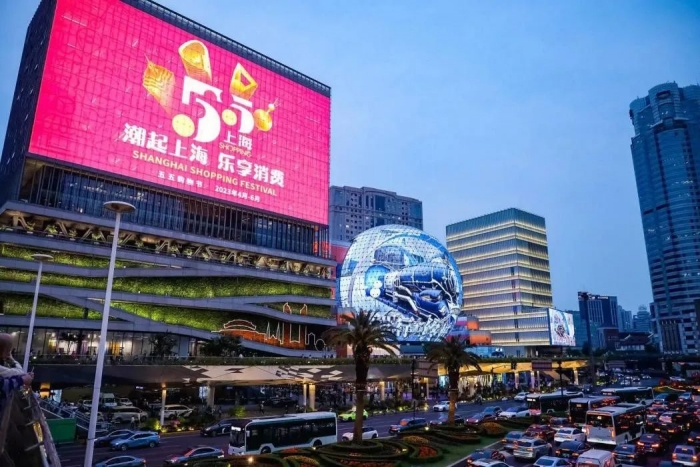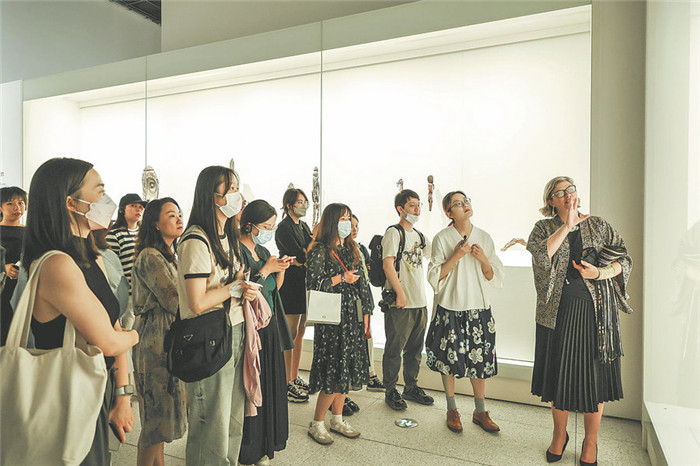FTZ expansion signals global ambitions

Automobiles are unloaded from a cargo carrier at a port in Lingang in Pudong New Area, Shanghai. [Photo/Xinhua]
The nation's first free trade zone will be enlarged to promote the next stage of the country's opening-up process.
The planned addition of a new area to the China (Shanghai) Pilot Free Trade Zone is aimed at promoting a higher level of opening-up to the outside world rather than just a simple expansion in geographical size, according to a top official from Shanghai.
The new area will become a special economic function zone, with stronger market influence and international competitiveness via institutional innovation and functional reconstruction, said Li Qiang, Party secretary of Shanghai.
"It will work as an important carrier for China to become deeply integrated with economic globalization," he said at a plenary meeting of the Shanghai delegation attending the ongoing session of the National People's Congress, the top legislative body, in Beijing on March 6.
The zone-the first in China-was established in 2013, and initially covered 28.78 square kilometers. It was expanded to 120 sq km in late 2014.
In his keynote speech at the opening ceremony of the China International Import Expo in Shanghai in November, President Xi Jinping said the FTZ would be enlarged again.
Xi also announced two other major tasks for the city-to launch a science and technology innovation board on the Shanghai Stock Exchange in tandem with an experimental registration-based system for initial public offerings, and to promote higher-quality growth and the integration of the Yangtze River Delta as a national strategy.
Li said making the announcements during such a special occasion as the opening ceremony of the inaugural CIIE indicated the nation's commitment to the promotion of a new round of reform and opening-up.
"It again demonstrated the clear attitude and firm determination that China will not close its doors to the world and that reform steps will never stop," he said at the ongoing two sessions-the annual meetings of the NPC and the Chinese People's Political Consultative Conference, the top political advisory body.
He also praised the deliberations about the draft law on foreign investment: "The law, if passed, will be conducive to the establishment of a stable, transparent, predictable and fair business environment, which will offer a legal guarantee for Shanghai to push forward the expansion of the free trade zone, construction of which will start soon."
Speaking at the city's annual legislative meeting in January, Ying Yong, mayor of Shanghai, said the FTZ will be comparable with other zones across the globe, offering the most competitive policies and putting forward attractive opening-up policies and systems.
Hang Yingwei, an NPC deputy and head of the government of Pudong New Area, where the Shanghai FTZ is located, said the zone's new area will push forward innovation in terms of offshore trade and an experimental "white list" system, featuring companies and entities that will receive preferential treatment.
"The FTZ's new area will focus on the development of the offshore economy, the innovation economy, the headquarters economy (growth based on attracting the headquarters of large companies) and the digital economy," Hang said on the sidelines of the NPC session.
As an example, he cited the China headquarters of Volvo Construction Equipment in Shanghai, which was the first company to complete the domestic settlement of offshore trade with the separation of flows of orders, goods and capital.
 Contact Us
Contact Us

 New pedestrian street boosts Pudong's night economy
New pedestrian street boosts Pudong's night economy  Festival injects vitality into Shanghai's consumer market
Festival injects vitality into Shanghai's consumer market A journey through history
A journey through history Chinese roses bloom in Pudong
Chinese roses bloom in Pudong


